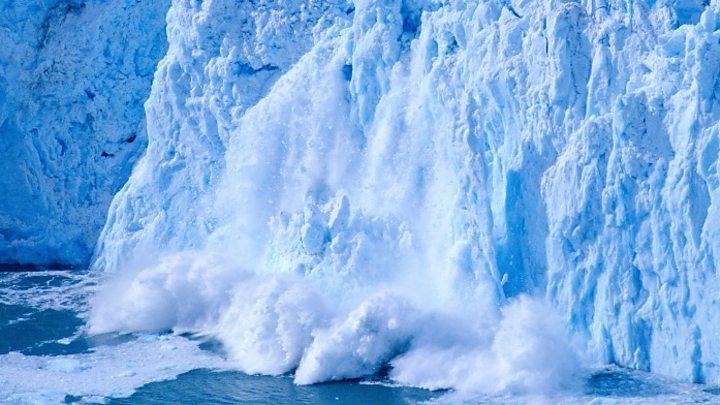The US has begun the process of withdrawing from the Paris Agreement, as other countries expressed regret and disappointment at the move.
The Trump administration formally notified the United Nations on Monday of its intention to exit the deal.
The notification begins a one-year process of exiting the global climate change accord, culminating the day after the 2020 US election.
The agreement brought together 188 nations to combat climate change.
It committed the US and 187 other countries to keeping rising global temperatures below 2C above pre-industrial levels and attempting to limit them even more, to a 1.5C rise.
The decision to withdraw - taken by President Donald Trump - made the US the world's sole non-signatory and prompted high-level efforts by the European Union to keep the agreement on track.
Why is this happening now?
Mr Trump had made withdrawing from the 2015 agreement one of his campaign pledges - but UN rules have meant it was not possible for the US to start the withdrawal process until 4 November 2019.
The withdrawal is still subject to the outcome of next year's US presidential election - if Mr Trump loses, the winner may decide to change course.
But scientists and environmentalists fear the effect the Trump administration will have on climate protections in the meantime.
- What is in the Paris climate agreement?
- Paris pullout: The worst is yet to come
- Five effects of US pullout from Paris climate deal
A report issued in December 2018 by the Institute of International and European Affairs suggested President Trump's decision to leave had done "very real damage" to the Paris agreement, creating "moral and political cover for others to follow suit".
The report cited the examples of Russia and Turkey, which both declined to ratify the deal despite signing.
What reaction has there been?
The decision by the US - one of the world's biggest emitters of greenhouse gases - drew condemnation from environmentalists and expressions of regret from world leaders.
An official for France's presidential office said "we regret this and this only makes the Franco-Chinese partnership on the climate and biodiversity more necessary."
French President Emmanuel Macron and his Chinese counterpart Xi Jinping are due to meet in Beijing on Wednesday, where they are expected to sign a statement declaring the "irreversibility of the Paris accord", the official added.

Meanwhile, Japan's top government spokesman Yoshihide Suga echoed those sentiments, calling the US's withdrawal "disappointing".
"We would like to tackle the climate change issue actively while seeking a way to work on it with US," he told reporters.
Meanwhile, Democratic politicians and environmentalists condemned the decision.
- Impacts 'accelerating' as leaders gather for talks
- Climate change: Are lifestyle changes are the only answer?
Nancy Pelosi, the Democratic speaker of the House, condemned Mr Trump's move as a "disastrous decision that sells out our children's future", while former vice-president and climate campaigner Al Gore derided those who would "sacrifice the planet for their greed".
"It is about the darkest moment in American diplomacy in a very, very long time and a huge blow to global efforts," said Bill McKibben, leader of climate campaign group 350.org, told the BBC's Newsday programme.
However, the move was welcomed by Republican congressman Gary Palmer, who tweeted: "It is high time for the US to leave this overly regulative and burdensome agreement that doesn't really address climate change."
Why does the US want to withdraw?
US Secretary of State Mike Pompeo said on Monday that the agreement had imposed an "unfair economic burden" on the United States.
Instead, he said, the US would follow "a realistic and pragmatic model", using "all energy sources and technologies cleanly and efficiently", he said in a statement.
Mr Trump promised to turn the US into an energy superpower, and has attempted to sweep away a raft of pollution legislation to reduce the cost of producing gas, oil and coal. He characterised former US President Barack Obama’s environmental clean-up plans as a war on American energy.
Announcing his decision to withdraw, last year, Mr Trump said: "I was elected to represent the citizens of Pittsburgh, not Paris. I promised I would exit or re-negotiate any deal which fails to serve America's interests."


Comments
Post a Comment